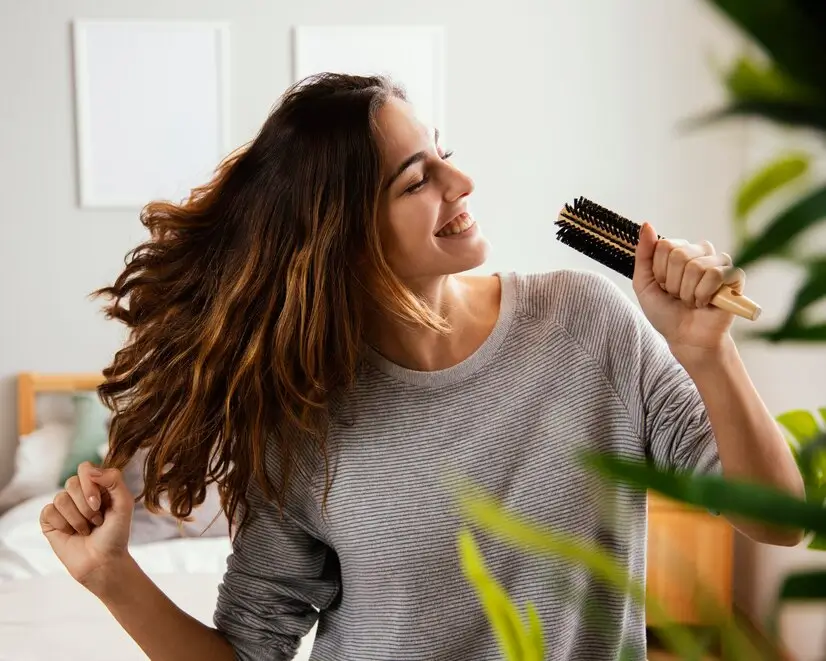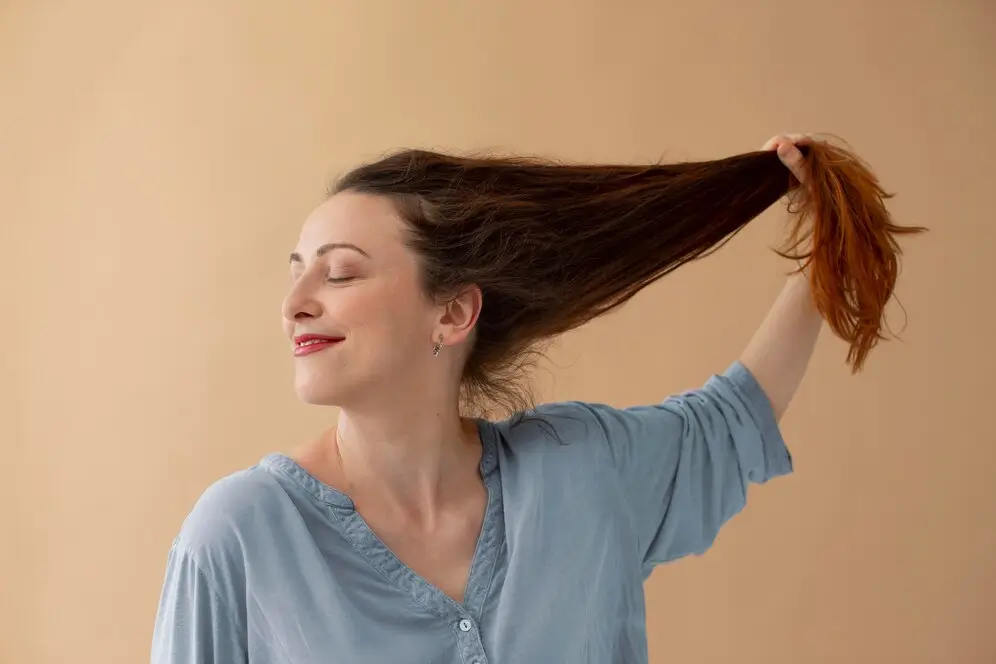Discover the Key to Healthy Hair Health With Our 10 Expert Tips
Table of Contents
Healthy, lustrous hair is a goal many aspire to achieve. Beyond mere aesthetics, the condition of our hair often serves as a reflection of our overall well-being. In this article, we’ll explore ten practical tips for maintaining optimal hair health, from understanding the basics of hair structure to implementing effective daily routines. Let’s dive into the world of healthy hair.

Understanding Hair Structure
Before delving into the tips, it’s crucial to comprehend the basics of hair structure. Each strand of hair is composed of various layers, and understanding this composition is key to proper hair care. The outer layer, known as the cuticle, plays a significant role in protecting the inner layers. This insight will guide us as we explore ways to promote healthy hair.
1: Balanced Diet for Healthy Hair
Nutrition is the foundation of healthy hair. A well-balanced diet rich in vitamins, minerals, and proteins is essential for promoting hair growth and preventing issues such as breakage and thinning. Incorporate foods like salmon, eggs, nuts, and leafy greens into your diet to provide your hair with the nutrients it needs to thrive.
2: Hydration and Its Impact
Proper hydration is not only vital for your overall health but also crucial for maintaining vibrant hair. Dehydration can lead to dry and brittle hair, making it more prone to damage. Ensure you drink an adequate amount of water daily and consider using hydrating hair products to lock in moisture.
3: Proper Hair Washing Techniques
Believe it or not, how you wash your hair can significantly impact its health. Avoid using hot water, as it can strip the hair of its natural oils, leading to dryness. Choose a sulfate-free shampoo suitable for your hair type, and gently massage your scalp to stimulate blood flow and promote a healthy environment for hair growth.
4: Choosing the Right Hair Products
The multitude of hair care products available can be overwhelming. When selecting shampoos, conditioners, and styling products, pay attention to your hair type. For example, if you have oily hair, opt for products designed to control oil production. Additionally, avoid products containing harsh chemicals like sulfates and parabens, as they can contribute to damage over time.
5: Regular Trimming for Hair Health
While it may seem counterintuitive, regular trims are crucial for maintaining healthy hair. Trimming helps prevent split ends and breakage, promoting overall hair strength. Aim for a trim every six to eight weeks to keep your locks in optimal condition.
6: Protecting Hair from Heat Damage
Heat styling tools are a common part of many hair care routines, but they can wreak havoc on your strands if not used mindfully. To minimize heat damage, use these tools on the lowest setting necessary, apply a heat protectant before styling, and give your hair occasional breaks from heat styling to allow for recovery.
7: Scalp Care for Healthy Hair
A healthy scalp is the foundation for healthy hair. Treat your scalp with care by using a gentle shampoo, massaging it regularly to stimulate blood flow, and avoiding excessive scratching. Consider incorporating a scalp treatment into your routine to address specific concerns like dandruff or dryness.
8: Avoiding Tight Hairstyles
While stylish, tight hairstyles like braids, ponytails, and buns can exert excessive stress on your hair, leading to breakage and even hair loss. Opt for looser styles and give your hair a break from tight hairstyles to reduce tension on the strands.
9: Stress Management for Hair
Stress can manifest in various ways, and one of them is through hair issues. Chronic stress may contribute to hair loss and thinning. Practice stress management techniques such as meditation, deep breathing, or yoga to not only benefit your mental health but also support the health of your hair.
10: Protecting Hair from Sun and Environmental Damage
Environmental factors, including exposure to the sun and pollution, can impact the health of your hair. Shield your locks by wearing a hat in the sun, and consider using protective hair products containing UV filters. Additionally, wash your hair after swimming in chlorinated or saltwater to prevent damage.
DIY Hair Masks for Nourishment
For an extra boost of nourishment, consider incorporating DIY hair masks into your routine. Ingredients like coconut oil, honey, and avocado can provide deep conditioning and repair damaged strands. Experiment with these natural remedies to discover what works best for your hair.
Maintaining Consistency for Long-Term Results
Consistency is key when it comes to hair care. Implementing these tips into your routine over time will yield long-term benefits. Remember, small changes can make a significant difference in the health and appearance of your hair. Make these practices a habit, and you’ll be on your way to flaunting healthy, beautiful locks.

Conclusion
Achieving and maintaining healthy hair involves a combination of proper care, lifestyle choices, and a bit of self-love. By understanding the structure of your hair, providing essential nutrients through a balanced diet, and adopting consistent, healthy habits, you can enjoy vibrant, strong, and luscious locks. Experiment with these tips and tailor them to suit your unique hair needs. Here’s to a journey of healthier, happier hair!
FAQs:
How often should I trim my hair for optimal health?
Aim for a trim every six to eight weeks to prevent split ends and maintain overall hair health.
Are natural DIY hair masks effective for all hair types?
Yes, natural ingredients like coconut oil and honey can benefit various hair types, but it’s essential to tailor the ingredients to your specific needs.
Can stress really impact the health of my hair?
Yes, chronic stress can contribute to hair loss and thinning. Managing stress through relaxation techniques can benefit both your mental well-being and hair health.
Is it necessary to use a heat protectant before styling my hair?
Yes, using a heat protectant is crucial to minimize damage from heat styling tools and maintain the health of your hair.
How can I protect my hair from sun damage?
Wearing a hat in the sun and using hair products with UV filters can help shield your hair from sun damage.
What are the best foods for promoting healthy hair growth?
Foods rich in vitamins, minerals, and proteins, such as salmon, eggs, nuts, and leafy greens, are excellent for promoting healthy hair growth.
Can tight hairstyles lead to permanent hair loss?
While tight hairstyles can cause breakage and stress on the hair, permanent hair loss is rare. However, it’s essential to give your hair breaks from tight styles to maintain overall health.
How can I improve the hydration of my hair?
Ensure you stay hydrated by drinking enough water, and use hydrating hair products to lock in moisture and prevent dryness.